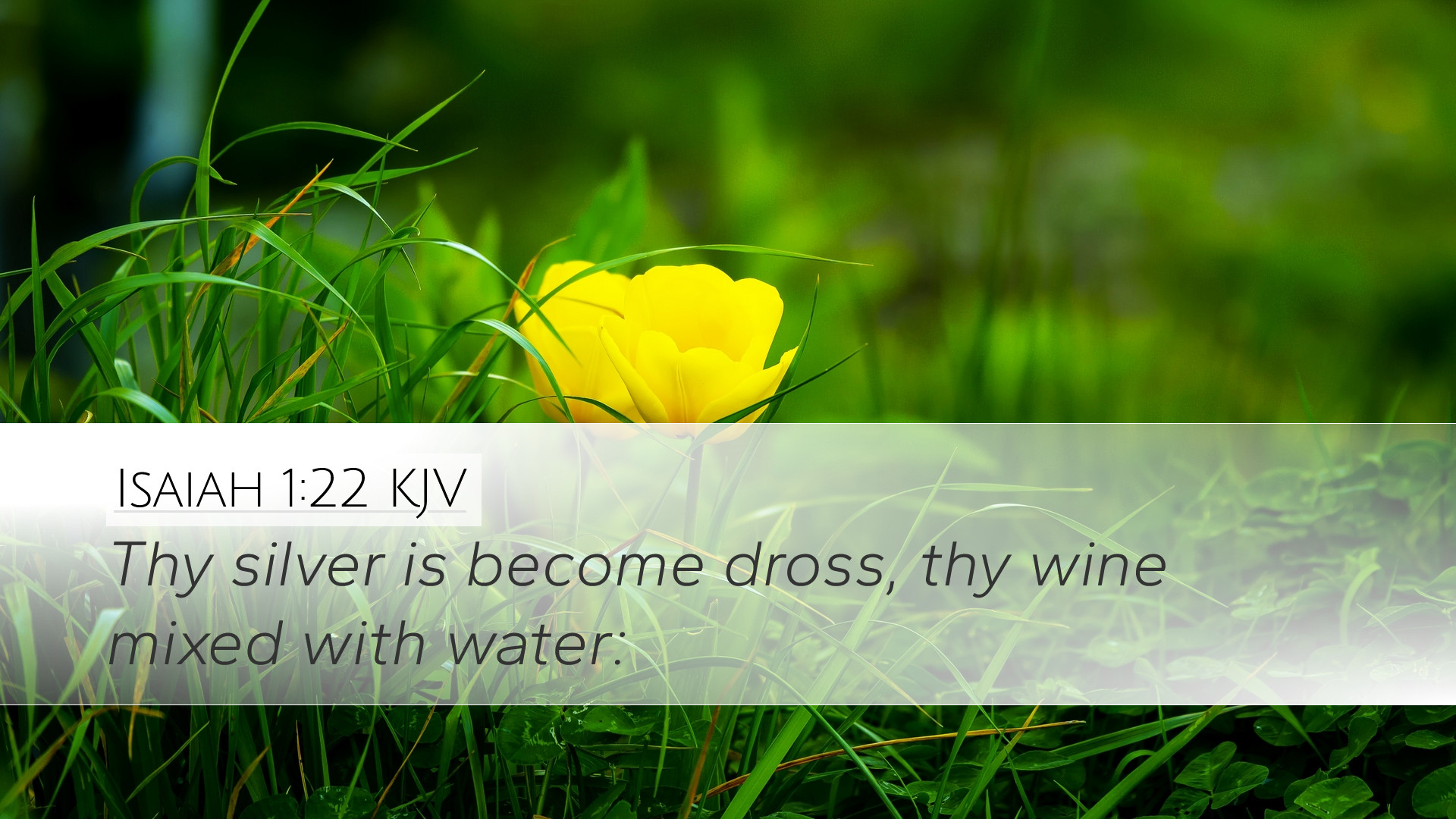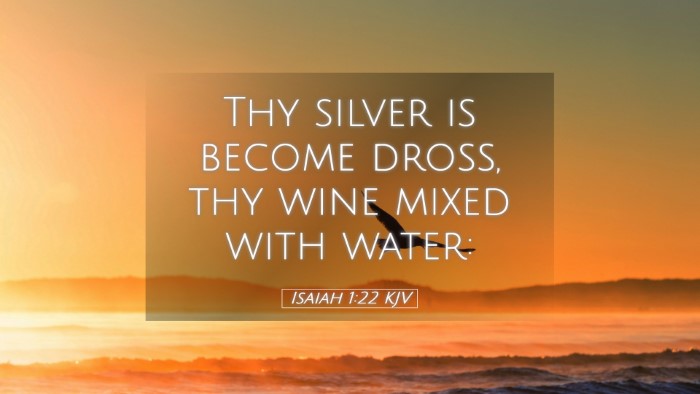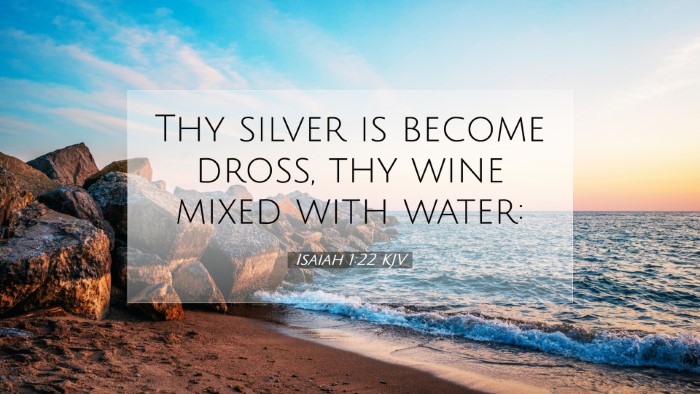Commentary on Isaiah 1:22
Isaiah 1:22 states: "Thy silver is become dross, thy wine mixed with water." This verse reflects a pivotal moment in Isaiah's address to the people of Judah, serving as a critique of their spiritual state and moral decay.
Contextual Background
The Book of Isaiah is a powerful prophetic work that addresses the nation of Judah during a time of social injustice, idolatry, and spiritual apathy. Isaiah's ministry occurred in a period when external threats loomed yet the internal moral fabric was equally at risk.
Analysis of the Text
This verse draws a vivid imagery pertaining to the purity of silver and wine, representing value and richness, which have now become corrupted.
Thy Silver is Become Dross
Dross refers to the impurities that rise to the surface during the refining of metals. Matthew Henry observes that God's people, who were once valued for their faith, are now worthless due to their iniquities.
- Spiritual Decline: The metaphor of silver becoming dross illustrates how the people's spiritual condition has deteriorated.
- Repentance and Purification: There is an implicit call for repentance, suggesting that genuine contrition is necessary to restore their value before God.
Thy Wine Mixed with Water
The mixing of wine with water also symbolizes dilution and loss of strength. Albert Barnes indicates that wine represents joy and abundance in biblical symbolism, while its mixture with water points to a loss of vitality.
- Loss of Authenticity: By diluting their faith and worship with corrupt practices, the Israelites have forfeited the joy intended in their covenant relationship with God.
- Hypocrisy in Worship: Adam Clarke emphasizes that the rituals and sacrifices offered were devoid of genuine meaning, akin to watered-down wine that no longer provides the intended refreshment to the soul.
Theological Implications
This verse presents several theological reflections that are essential for pastors, theologians, and scholars to consider:
God's Judgment and Mercy
The imagery conveys God's disapproval of the people's corrupt practices, which He perceives as quite contrary to His intentions. Nonetheless, within this indictment lies the promise of redemption:
- Judgment as a Precursor to Restoration: Understanding that divine judgment often serves as a catalyst for change and an invitation to return to righteousness is crucial.
- Hope for Restoration: The overarching narrative of Isaiah includes hope, pointing forward to a time when God will restore His people.
The Nature of True Worship
Isaiah 1:22 prompts a deep examination of what constitutes genuine worship:
- Authenticity in Adoration: The sacrifices and offerings must stem from a heart aligned with God's values, shunning any semblance of hypocrisy.
- Requirement of Holiness: Biblical worship demands holiness and righteousness. This aligns with the requirement found in Hebrews 12:14, "Strive for peace with everyone, and for the holiness without which no one will see the Lord."
Application for Contemporary Believers
The message in Isaiah 1:22 resonates today as believers are called to reflect on their spiritual state:
- Self-Examination: Just as silver must be refined, believers need to engage in self-examination, ensuring their faith is not diluted by worldly concerns or superficial practices.
- Commitment to Purity: There is an encouragement to pursue purity in heart, mind, and actions, striving for authenticity in all aspects of worship and life.
Conclusion
Isaiah 1:22 serves as a poignant reminder of the dangers of spiritual complacency and the need for integrity in worship. As scholars, pastors, and students of the Word, this verse compels a deeper reliance on God for cleansing and renewal. The prophetic voice of Isaiah beckons us to return to divine authenticity, shunning the dross and dilution that threaten our relationship with the Almighty.


